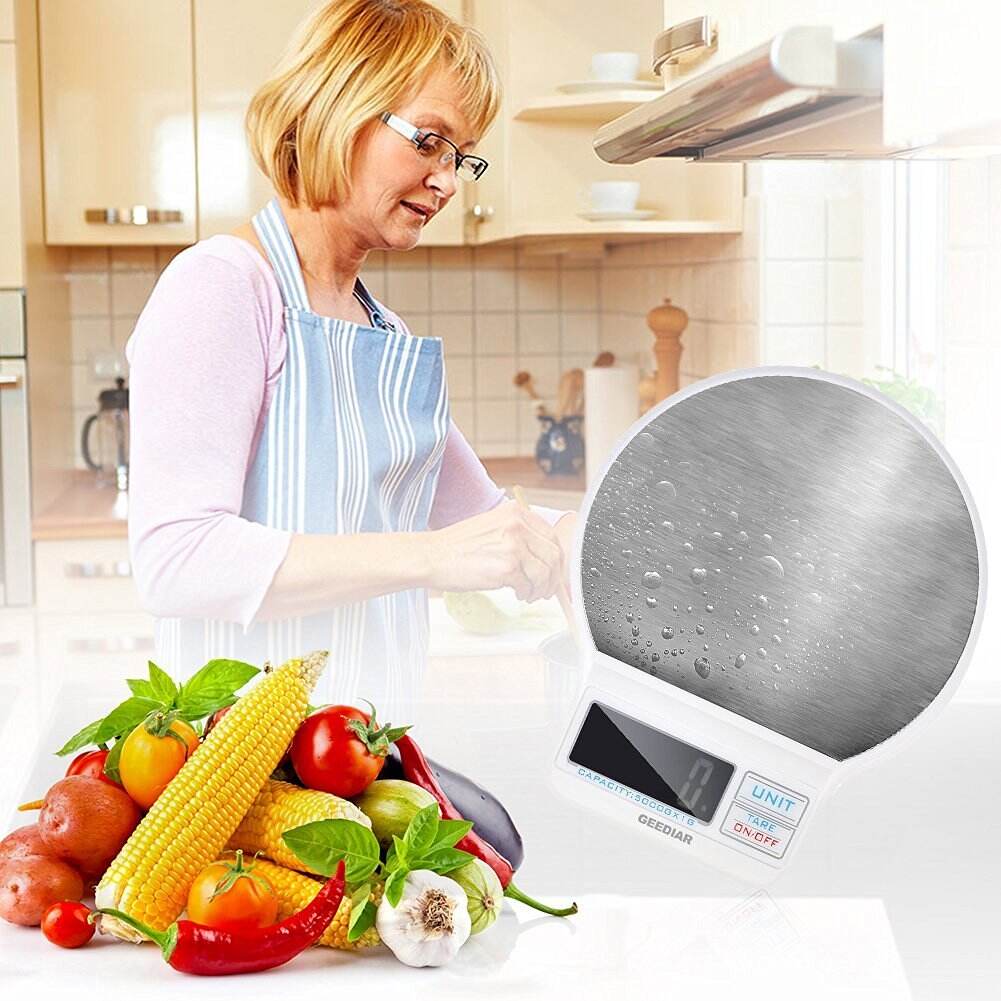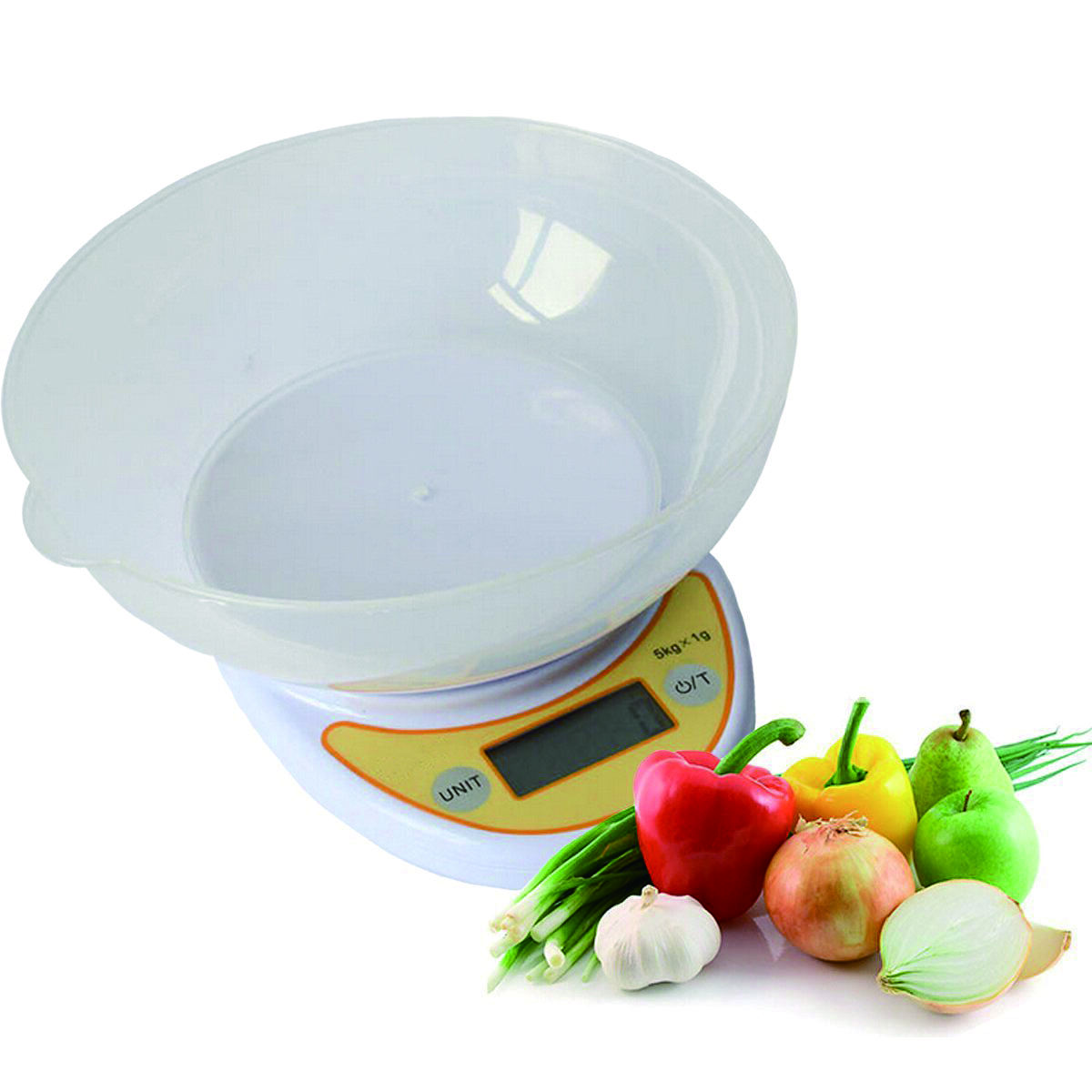Understanding the Science Behind Food Scale Precision
When it comes to achieving culinary excellence and maintaining precise portion control, a food scale stands as an indispensable kitchen tool. Modern food scales have revolutionized the way we measure ingredients, transforming cooking from an imprecise art into a reliable science. Whether you're a professional chef or a home cooking enthusiast, understanding the accuracy of your food scale can make the difference between mediocre results and consistently perfect dishes.
The precision of a food scale extends beyond simple measurements - it's about achieving consistency in recipes, managing nutritional intake, and elevating the overall cooking experience. Today's digital food scales can measure ingredients with accuracy down to 0.1 grams, making them substantially more reliable than traditional volume measurements like cups and spoons.
Types of Food Scales and Their Accuracy Levels
Digital Food Scales: The Modern Standard
Digital food scales represent the pinnacle of weighing accuracy in modern kitchens. These devices utilize advanced load cell technology to convert pressure into precise digital readings. Most quality digital food scales offer accuracy within 0.1 to 1 gram, making them ideal for both everyday cooking and precise baking applications. The digital display eliminates the guesswork associated with analog scales and provides consistent, reliable measurements every time.
High-end digital food scales often come with additional features that enhance their accuracy, such as tare functions, multiple unit conversions, and calibration capabilities. These features ensure that measurements remain precise regardless of container weight or environmental conditions.
Mechanical and Spring Scales: Traditional Options
While less common in modern kitchens, mechanical food scales still have their place in certain cooking scenarios. These scales typically offer accuracy within 2-5 grams, which may be sufficient for recipes that don't require extreme precision. However, their reliability can diminish over time as springs wear out and mechanisms become less responsive.
The main advantage of mechanical food scales lies in their simplicity and durability. They don't require batteries and can function reliably for years with proper maintenance. However, for recipes requiring precise measurements, particularly in baking, their margin of error may be too significant.

Factors Affecting Food Scale Accuracy
Environmental Influences and Calibration
Several environmental factors can impact the accuracy of a food scale. Temperature fluctuations, humidity levels, and even altitude can affect the precision of measurements. Professional-grade food scales often include temperature compensation features to maintain accuracy across various conditions. Regular calibration is essential to ensure consistent performance, particularly for scales used in commercial settings or precise baking applications.
Most digital food scales come with built-in calibration features or can be calibrated using standard weights. This process should be performed periodically to maintain optimal accuracy, especially if the scale is frequently moved or exposed to temperature changes.
Weight Distribution and Platform Design
The accuracy of a food scale can be significantly affected by how weight is distributed across its platform. High-quality scales feature larger platforms with multiple load sensors to ensure accurate readings regardless of where ingredients are placed. The platform's material and construction also play crucial roles in maintaining precision, with stainless steel and tempered glass surfaces providing the most stable weighing environments.
Advanced food scales incorporate corner-load protection, which maintains accuracy even when ingredients aren't perfectly centered. This feature is particularly valuable when weighing larger items or using oversized containers that might otherwise compromise measurement precision.
Professional Applications and Precision Requirements
Commercial Kitchen Standards
In professional kitchen environments, food scales must meet strict accuracy standards to ensure consistency in recipe preparation and portion control. Commercial-grade food scales typically offer precision within 0.5 grams and can handle higher weight capacities while maintaining accuracy. These scales often undergo regular certification to comply with health department regulations and quality control standards.
Professional kitchens rely on food scales for inventory management, recipe standardization, and cost control. The accuracy of these measurements directly impacts profit margins and customer satisfaction, making precise food scales essential tools in commercial food service operations.
Specialized Culinary Applications
Certain culinary disciplines demand exceptional precision from food scales. Molecular gastronomy, for instance, requires measurements accurate to 0.01 grams for ingredients like stabilizers and emulsifiers. Similarly, artisanal chocolate making and advanced baking techniques depend on exact proportions to achieve desired results.
For these specialized applications, laboratory-grade food scales may be necessary. These high-precision instruments offer unmatched accuracy but require careful handling and regular calibration to maintain their exceptional performance levels.
Maximizing Food Scale Accuracy in Home Cooking
Best Practices for Accurate Measurements
To achieve optimal accuracy with a food scale, proper usage techniques are essential. Place the scale on a flat, stable surface away from vibrations or air currents. Allow the scale to reach room temperature before use, and avoid exposing it to extreme temperature changes. When measuring ingredients, use the tare function between additions to ensure accurate cumulative measurements.
Regular cleaning and maintenance also contribute to sustained accuracy. Keep the weighing platform free from food debris and moisture, and store the scale in a protected environment when not in use. These simple practices can significantly extend the life and precision of your food scale.
Choosing the Right Scale for Your Needs
Selecting an appropriate food scale depends on your specific cooking requirements. Consider factors such as maximum capacity, readability (smallest measurement increment), platform size, and additional features like unit conversion or recipe memory. For general home cooking, a digital scale with 1-gram accuracy is usually sufficient, while baking enthusiasts might prefer models with 0.1-gram precision.
Investment in a quality food scale pays dividends in cooking success and consistency. Look for reputable brands with good warranty coverage and positive user reviews regarding long-term accuracy and reliability.
Frequently Asked Questions
How Often Should I Calibrate My Food Scale?
For home use, calibrating your food scale every 3-6 months is generally sufficient. However, if you notice any inconsistencies in measurements or use the scale frequently, monthly calibration may be necessary. Professional environments might require weekly or even daily calibration checks depending on usage intensity and regulatory requirements.
Can Temperature Affect My Food Scale's Accuracy?
Yes, temperature fluctuations can impact food scale accuracy. Most digital scales perform best at room temperature (68-77°F/20-25°C). Extreme temperatures can affect the electronic components and load cells, potentially leading to inaccurate readings. Always allow your scale to acclimate to room temperature before use.
What's the Typical Lifespan of a Quality Food Scale?
A well-maintained digital food scale typically lasts 5-7 years with regular home use. Professional-grade scales may last longer, often 8-10 years or more. The lifespan largely depends on usage frequency, maintenance practices, and environmental conditions. Regular cleaning and careful handling can significantly extend a scale's useful life.

